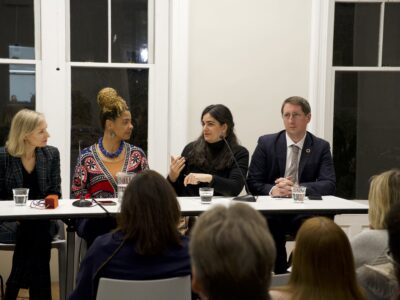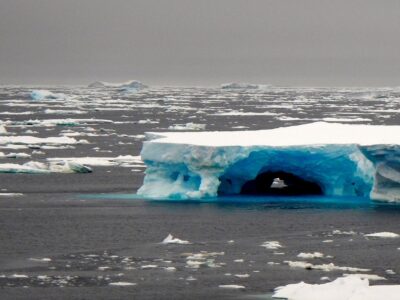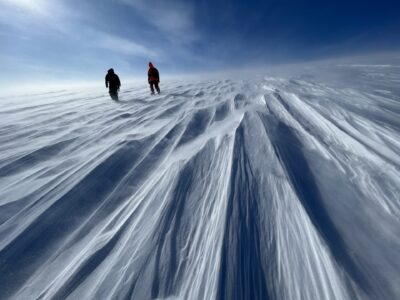
Climate and Society 2020 students are blogging about topics that interest them for Applications in Climate and Society, a core spring class. Follow along here.
Colombia is filled with mangos. During the harvest, you will see people selling them by the side of the roads or even giving them away because of the abundancy. Though mango trees grow almost everywhere in the country, the trees only bear fruit in the warmest areas, the lowlands.
Imagine my surprise when in 2016, the only two 50-year-old mango trees we have on our mountain farm gave us our own personal harvest for the first time in their lives. Mangos usually bring me a lot of joy, but seeing those little green fruits brought me dread.
Climate change had stepped out of the abstract realm of science and was blossoming in my backyard amidst the hottest year on record. I had learned about climate change in high school, and I understood the science behind it. But it had never really hit home what it meant until I saw those mangos. It got me wondering if anyone else had had a similar small moment of enlightenment? For me, it was mangos. But what did that moment look like for other people? I asked around on social media, posing the question “when was the first time you realized climate change was a big deal?” I was interested in hearing if others had felt that very primal reaction when your guts tell you something is wrong. I ended up with roughly 25 different stories of how people experienced climate change for the first time.
Having such a particular moment myself, I wasn’t surprised to see how varied everyone’s stories were. The most striking was from a friend who overheard her father and grandfather talking about how the wetlands they used to bring their cows to graze in were drying up, which made them produce less milk. Other moments were rooted in spiritual traditions and experiences, like how Catholics in Colombia believe that it rains every Holy Friday, but that had seemed to have stopped in the last few years. Even though this is mainly superstition rather than science, the rainy season usually coincides with Easter. And with climate change, wet seasons have become less consistent in many parts of the country. Some respondents didn’t talk about climate change, but rather the twin problem of biodiversity degradation. One person talked about not seeing monkeys in their backyard anymore and assuming they were gone because of habitat destruction.
These very personal events all led to shifts in people’s ordinary lives and how they perceived the world. It helped them make sense of this very complicated issue, raising their concerns and desire to take action. Each person’s unique moment helped them craft a story, which can be a very powerful tool for engaging with the climate challenge. It can create a narrative and help us wrap our heads around this unsurmountable topic that seems to have so many layers. In other words, stories and the moment of epiphany in particular create a mental short-cut to replace a hard question with a simpler one. One that you can actually answer. It’s easier to ask why mangos are growing in the mountains if it’s usually not warm enough, than what climate change is and how it affects us. And answering that can ignite the spark needed to achieve the societal change to overcome the climate crisis. It can make you feel closer to the issue and inspire you to make changes in the way you live.
As mangos kept falling from our trees during that uncanny harvest, something stirred inside me as well. It made me take this huge leap of faith, abandoning architecture to study climate. It was a turning point in my life. The stories and moments other people have had are theirs to tell and keep, and, ultimately, act upon.
This story was originally published by the MA in Climate and Society at Columbia University.



